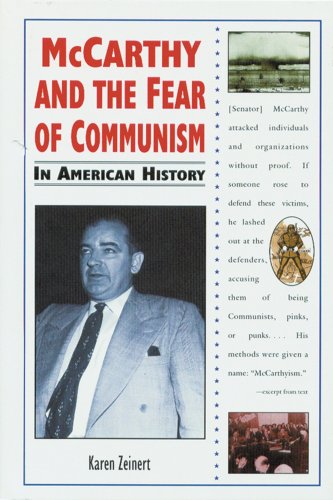-
The Invention of the Telegraph and Telephone in American History
Anita Louise McCormick
Library Binding (Enslow Pub Inc, Jan. 1, 2004)Examines the work of Alexander Graham Bell in inventing the telephone, and of Samuel Morse in inventing the telegraph, offering a look at the development of the earliest forms of telecommunication.
-
The Wright Brothers: First in Flight
Samuel Willard Crompton
Hardcover (Chelsea House Publications, May 1, 2007)In December 1903, Orville and Wilbur Wright made history by embarking on the first controlled airplane flight among the dunes of Kitty Hawk, North Carolina, thus opening up an era of aviation throughout the world. This title is part of the Milestones in American History series. Z+
Z+
-
Women Inventors
Linda Jacobs Altman
Hardcover (Facts on File, June 1, 1997)Offers profiles of Amanda Theodosia Jones, Carrie Everson, Dr. Sara Josephine Baker, Madam C.J. Walker, Ida Rosenthal, Katharine Blodgett, Elizabeth Hazan and Rachel Brown, Bette Graham, and Ruth Handler P
P
-
The Industrial Revolution: The Birth of Modern America
Emily Mahoney
Library Binding (Lucent Books, Aug. 15, 2017)Presents the history of the industrial revolution in the United States, discussing how it changed the social, economic, and environmental landscape of the country. Z
Z
-
The Internment of Japanese Americans During World War II: Detention of American Citizens
John C Davenport, John Davenport PH.D.
Library Binding (Chelsea House Publications, Jan. 1, 2010)Describes the tragic tale of injustice and racial hatred against a minority caught in the crosshairs of a world war. Z
Z
-
Profiles in American History - Indian Removal to the Antislavery Movement: Significant Events and the People Who Shaped Them
Joyce Moss, George Wilson
Hardcover (U·X·L, Feb. 11, 1994)This accessible, 8-vol. reference focuses students attention on 160 notable individuals who have shaped American history, from the exploration of the continent to the present. Each chronologically arranged volume ties key people to significant events during a particular era. Balanced not only in gender and ethnic background, but also in viewpoint, the biographies in Profiles in American History offer a unique slant on event-based teaching. Stand-alone volumes include chapter-specific timelines; maps, illustrations and photographs; sidebars highlighting key facts; a bibliography; and a cumulative subject index.
-
The Little Rock School Desegregation Crisis in American History
Robert Somerlott
Library Binding (Enslow Pub Inc, Aug. 1, 2001)Recounts how nine African American teenagers defied racism to attend a previously all-white high school in Little Rock, Arkansas, in 1957, the ways the state and federal governments responded, and the effects of their struggle.
-
The Battle of the Little Bighorn in American History
Nancy Warren Ferrell
Library Binding (Enslow Pub Inc, Aug. 1, 1996)Describes the Battle of Little Bighorn and the events that led up to it. S
S
-
The Prohibition Era: Temperance in the United States
Louise Chipley Slavicek
Library Binding (Chelsea House Publications, Nov. 1, 2008)'The Prohibition Era' examines the social, political, and economic factors that led to the banning of alcohol and its eventual reinstatement as a legal beverage. This book is suitable for use in secondary education, and features biographical sidebars, a chronology, a timeline, and footnotes. W
W
-
George Rogers Clark
Russell Roberts
Library Binding (Mitchell Lane Publishers, Dec. 15, 2006)Many people do not realize that there were two theaters of warfare during the American Revolution. One was in the east, with George Washington and his Continental Army. The other was in the west, with George Rogers Clark and his spirited volunteers trying to hold off the British and their Native American allies. The story of George Rogers Clark is one of courage, bravery, and daring in the face of overwhelming odds. Often finding himself in what appeared to be a hopeless situation, Clark used skill and ingenuity to improvise his way to repeated victories. He was the fabled Long Knife, known far and wide not only for his brutality but also for his honesty and bravery. His victories played a key part in helping America win the War of Independence. Unfortunately, the later years of his life were not kind to Clark. Although he died a forgotten and tragic figure, nothing can erase his heroic accomplishments. U
U
-
McCarthy and the Fear of Communism in American History
Karen Zeinert
Library Binding (Enslow Pub Inc, Aug. 1, 1998)Outlines the rise of anti-communism in the United States beginning after World War I and culminating in the virulently anti-communist activities led by Senator Joe McCarthy in the 1950s. Also discusses the aftermath of the McCarthy era. W
W
-
Ellis Island
Catherine Reef
Hardcover (Dillon Pr, Nov. 1, 1991)Reviews the history of the immigration center where more than twelve million immigrants became new Americans over a sixty-year period Q
Q